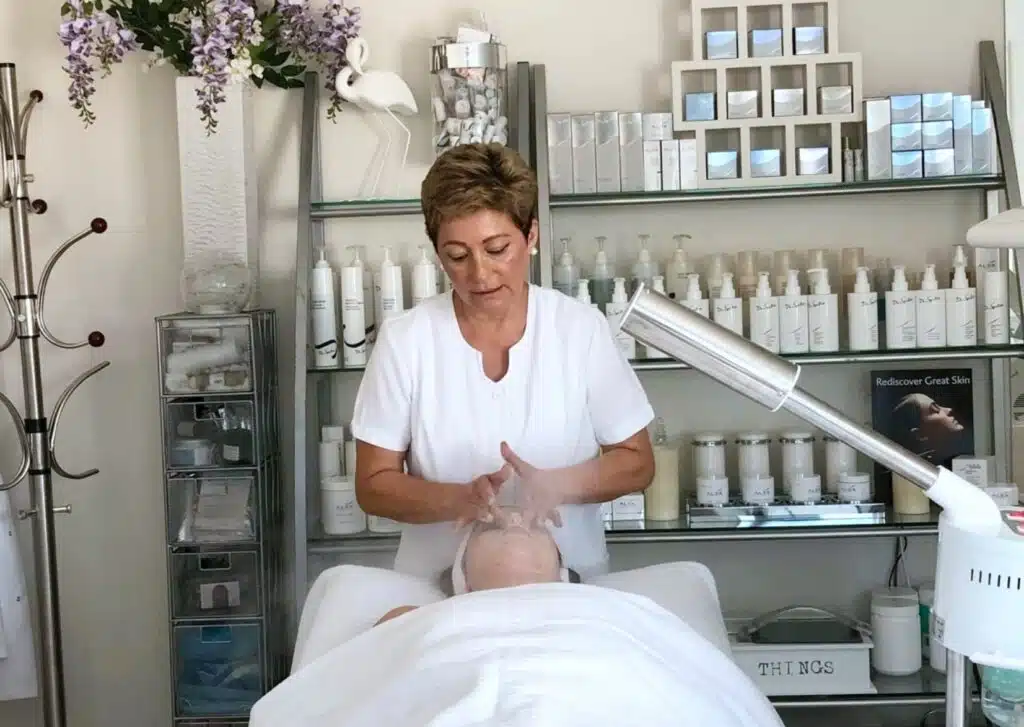
1. Pick the right makeup – Having sensitive skin doesn’t mean that you can’t ever wear makeup, however, it is important that you don’t just blindly purchase products with big buzz words on them. Instead, take a look at the ingredients, experiment, and do your research. Mineral powder is often made with no artificial dyes and preservatives.
2. Find the right cleanser – It’s so important that you cleanse your skin every day. That being said, there are also so many different types of cleansers on the market — some amazing, some not so much. You should also be looking for a cleanser that’s made for sensitive skin yet isn’t so gentle that it forces you to scrub really hard to get rid of makeup and any clinging grime. Be gentle on your skin; blot drying without rubbing and then following up immediately with moisturiser to ensure you get maximum absorption.
3. Switch your laundry detergent – It might come as a bit of a surprise, but switching your laundry detergent can actually make a difference. You want a detergent that doesn’t contain any dyes, brighteners, phosphates, enzymes, or chlorine. This works especially well for those with contact dermatitis.
4. Know the ingredients – Whether you are buying makeup or skincare products, it is crucial that you take a look at what ingredients they are made with before purchasing. Don’t just base it off of the one big word on the front of the bottle — take a closer look.
5. Skin test – When you are looking to try a new product or an entirely new brand, it is a good idea to do a skin test with the product before applying it to your entire face. Put a small amount of the product on your skin, not your face, and wait 48 hours. See if any change or reaction occurs.
6. Pay attention to what you eat – Diet really is so important when it comes to your skin. You can have all the most expensive serums but if you are eating trans fat and sugar for breakfast, lunch, and dinner, the fancy products won’t work. Moreover, there are certain foods that can be causing your skin to break out. Find what works for you!
7. Pat, don’t rub – When cleansing and drying off your face, it is so important to pat it dry. Don’t rub it with a rough towel, as this can irritate your sensitive skin.
8. Don’t forget about your body – If you have sensitive skin on your face, there’s a chance the rest of your body might be sensitive. It is important to take care of the rest of it. Do this by exfoliating and using nourishing body washes and moisturisers all over!
9. Yoghurt and oatmeal – Who would have thought that, when blended together, yoghurt and oatmeal actually create a great DIY mask for sensitive skin types? The combination gently removes dead skin cells while still leaving skin fresh and moisturised.
10. Use as few products as possible – You can’t really get to the bottom of what’s irking your skin without eliminating some products first. Also, using too much at once can just have the opposite effect on your skin and irritate you even more. Generally speaking, when dealing with sensitive skin follow the principle that less is more, meaning products with fewer ingredients are better for those with sensitive skin.
11. Do not over-wash – It is important not to over-wash. The skin does a surprisingly good job of staying clean naturally without the need for harsh cleansers, exfoliation, and scrubbing.
12. Don’t over-exfoliate – Over-exfoliating is often a temptation that many of us try to resist. Doing so thins the protective barrier of the skin, thus allowing irritating chemicals to penetrate the skin more easily.
13. Identify your triggers – Sometimes it is easy to find which ingredients specifically trigger your skin. However, sometimes, it may require you to do a couple of patch tests. Fragrances, dyes, and preservatives tend to be the easiest-to-spot triggers. Basically, anything that smells good is probably not as good for you.
14. After a reaction – After you have a bad reaction, it is important to take several steps back. Cut down to using only one product for at least one week. Then, add one product back in very slowly at a time. We can be super careful and still have a reaction, it happens.
15. Keep showers short – Keep your showers to 10 minutes or less if you can. And make them warm, not hot. Additionally, avoid using washcloths or loofahs, as these can also irritate your skin.
16. Limit soap in your showers – During bathing, limit soap/bath gels to a single fragrance-free. In people with sensitive skin, it can dry the skin out and cause problems.
17. Understand the symptoms of sensitive skin – Even before we start treating it, we have to make sure we know what to look for. Does your skin only get irritated when in the sun? Does it break out easily? Does it get red or itchy? Dry? Pay close attention so that you can monitor how it’s doing.
18. Avoid touching your face – If you have concentrated areas of breakouts, it could mean that you are touching your face too much. Imagine all the things you touch throughout the day, and then touching your face after that. Stop touching it and also wash your hands!
19. Avoid fragrance – If it smells good, it is probably not good for you. Products with fragrances contain the most allergens.
20. Organic isn’t necessarily better – We usually assume products labelled as natural or organic are always better, but that is not necessarily the case. Plenty of natural ingredients also qualify as allergens and irritants. Lavender and tea tree oil are good examples of this.
21. Facts
- Dehydration is a major contributing factor to the ageing process.
- Most skincare creams are water-based. Light and easy to apply, they feel good but require higher levels of chemicals and do not maintain the skin’s hydration level for long
- Scientific testing has proven that oil-based creams offer longer-lasting hydration and superior delivery of actives.
- Dr. Spiller technology relies on a special formulation that creates a protective net over the skin. Combining the hydrating benefits of an oil-based cream with the lightweight feel of a water-based cream, the results are immediate:
- Increased protection against dehydration, inflammation and oxidation
- Enhanced delivery system resulting in plump and younger-looking skin.

